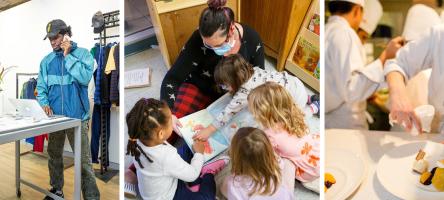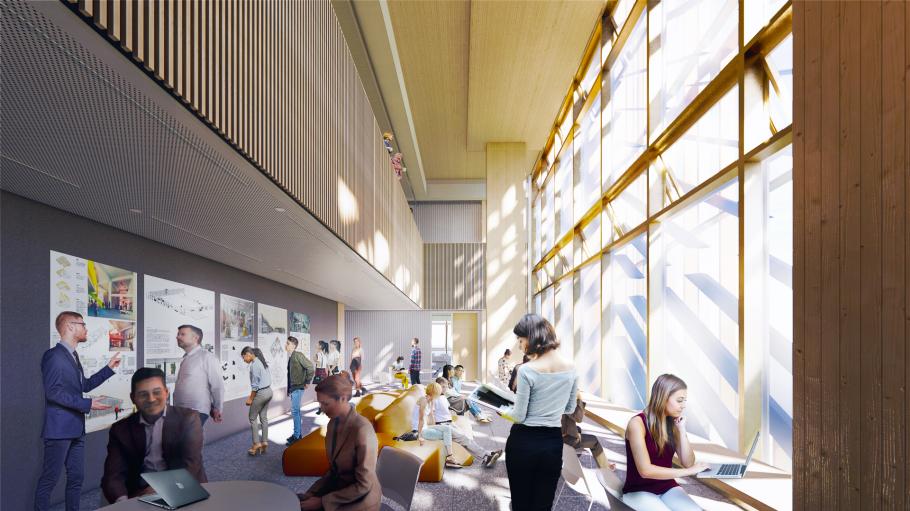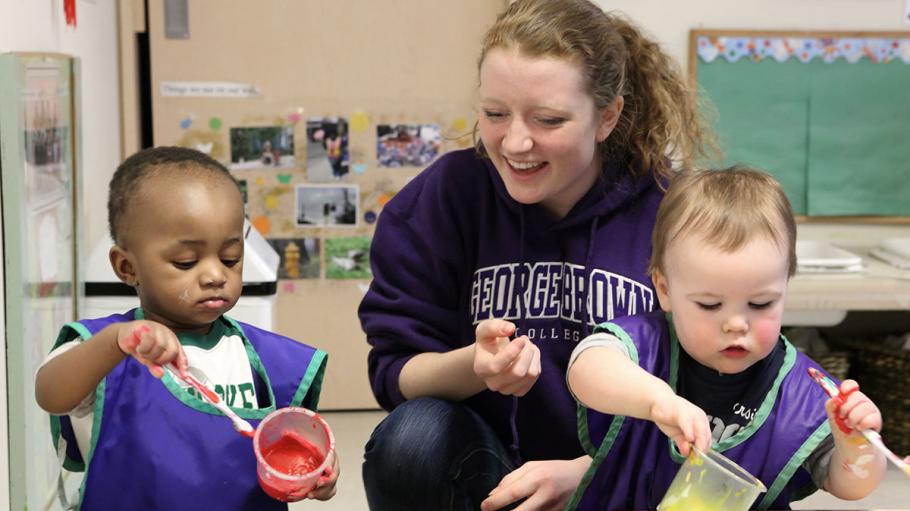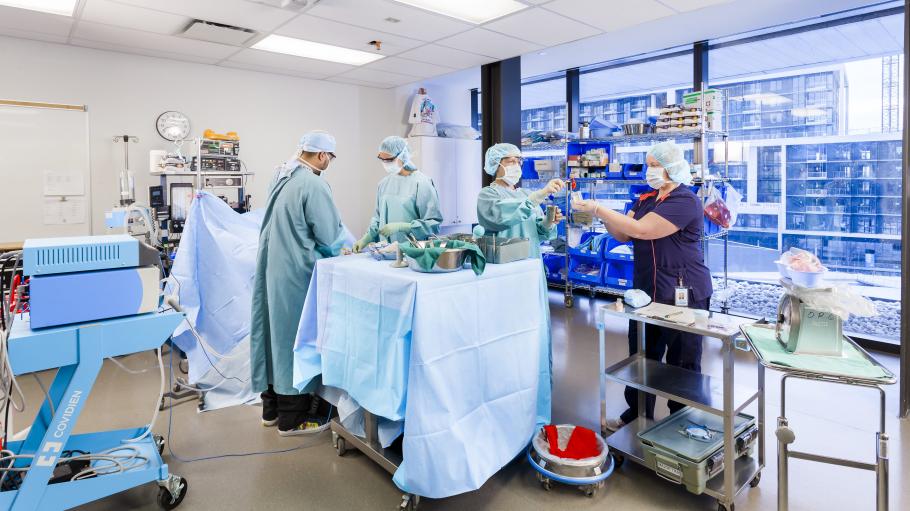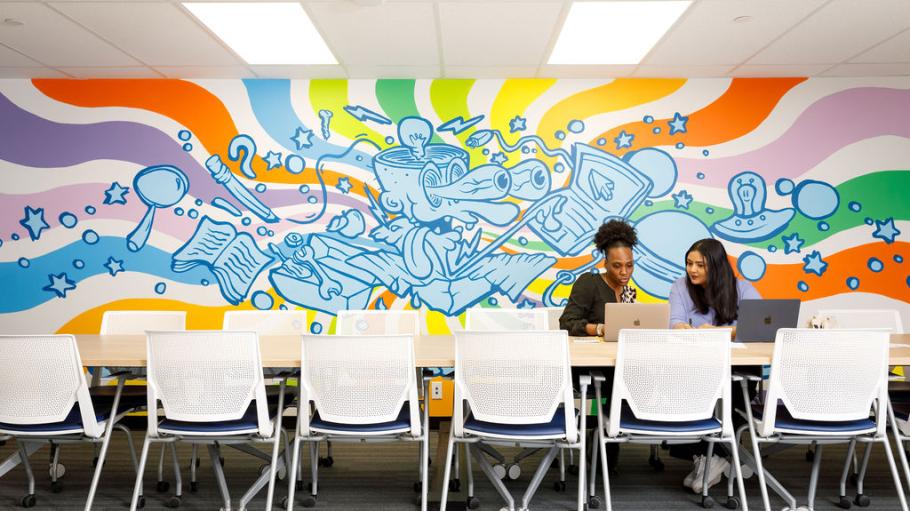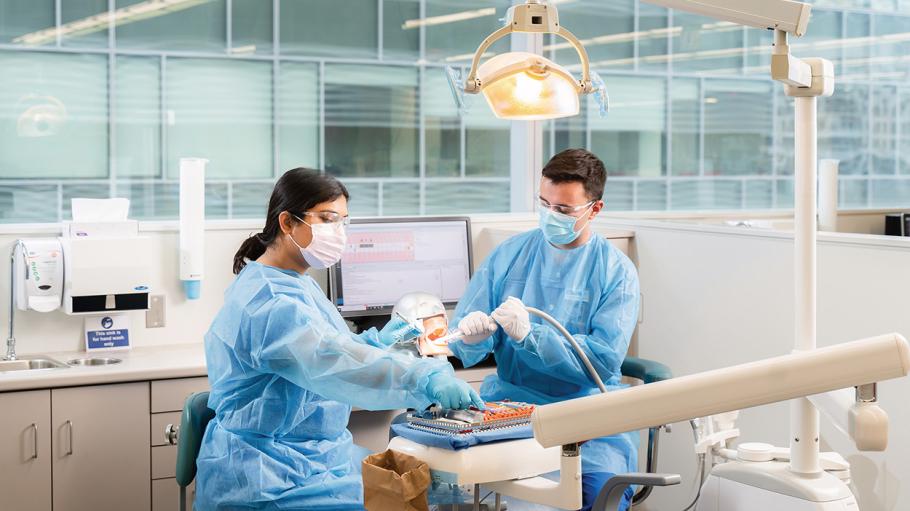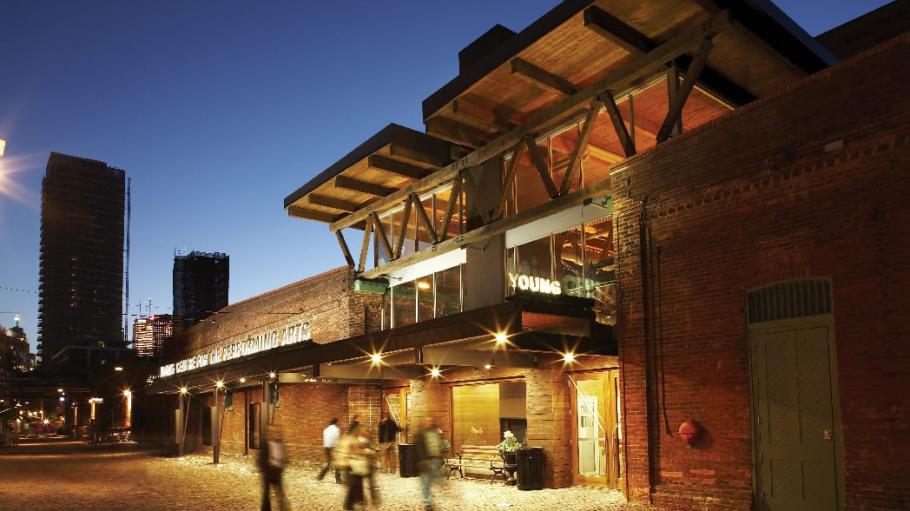What is Experiential Learning?
Experiential learning is an umbrella term used to cover all opportunities available to students to participate in sector-specific learning experiences.
These opportunities can take place in a variety of settings on campus or off campus. The following are examples of the types of experiential learning you can expect at George Brown College:
- Capstone projects
- Case studies
- Interactive simulations
- On-campus labs
- Performance-based learning
- Work-integrated learning (WIL)
What is Work-Integrated Learning (WIL)?
Work-integrated learning is a type of experiential learning that combines a student’s academic studies with experiential learning in a workplace or practice setting. It generally involves a student, the college, and a host organization. Examples of WIL include:
- Applied research projects
- Apprenticeships
- Campus entrepreneurship and Incubators
- Co-ops
- Field experiences (international opportunities available)
- Placements (field, clinical and practicum)
- Service learning
Contact Us
Are you interested in providing students with valuable experiential learning, work-integrated learning, co-op, or field placement opportunities?
Contact us at learnandwork@georgebrown.ca to explore how your organization can collaborate with George Brown College.
Learn by Doing
All our career-focused programs include at least one experiential learning opportunity to develop practical sector-specific skills. These opportunities improve your understanding of industry expectations so you can hit the ground running when you enter the workforce.
Find out how to get involved.
Experiential Learning & WIL Opportunities On Campus
The Benefits of Experiential Learning
For students
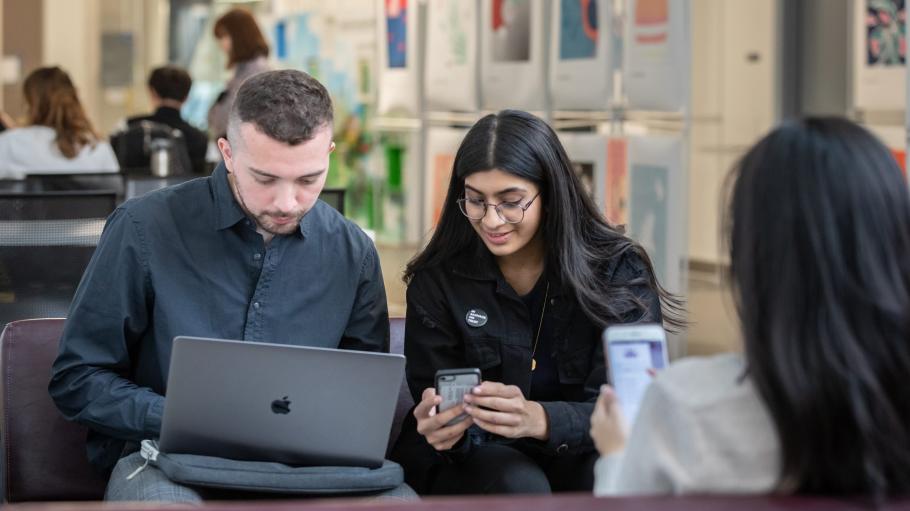
- Start building your resume with real-world experience
- Get an inside look at your future industry
- Develop professional connections
“If I didn’t have this opportunity, I think I’d still be looking for work. I graduated from university in 2018, and it took me until this work-integrated learning opportunity to find any work in the field. This definitely gave me what I needed.” -Artem Naida, Information Systems Business Analysis graduate, 2020
For Employers

- Vet students for potential work opportunities upon graduation
- Bring new perspectives to your business
- Get support with tasks or specific projects
"The GBC students really stood out. They were energized, inquisitive and professional and experimented with multiple tools and different approaches. ... The students were timely and delivered the work products as instructed, sometimes going well above and beyond." -Robert Crooks, CEO and Founder, Soteria120
